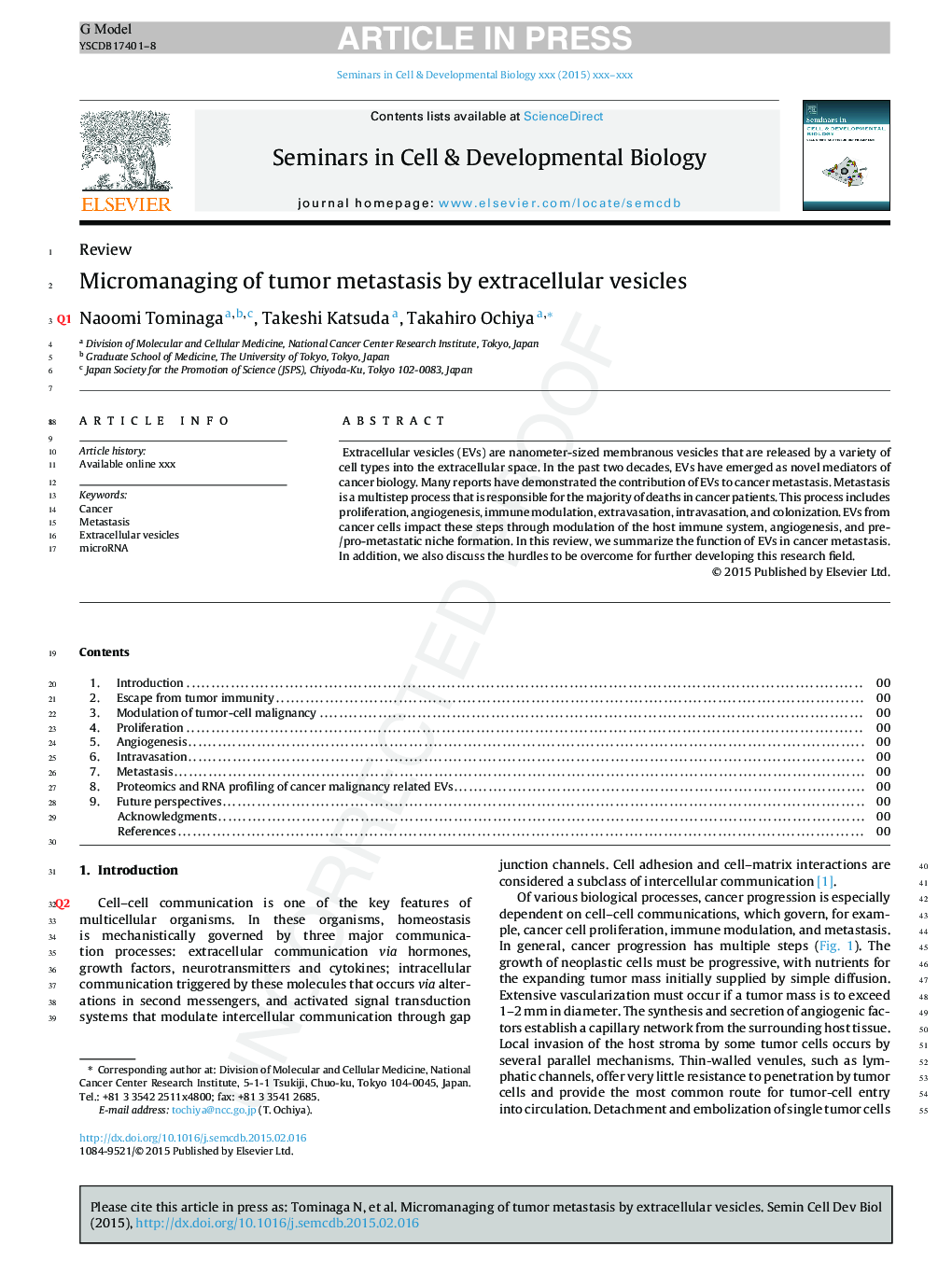| Article ID | Journal | Published Year | Pages | File Type |
|---|---|---|---|---|
| 8480440 | Seminars in Cell & Developmental Biology | 2015 | 8 Pages |
Abstract
Extracellular vesicles (EVs) are nanometer-sized membranous vesicles that are released by a variety of cell types into the extracellular space. In the past two decades, EVs have emerged as novel mediators of cancer biology. Many reports have demonstrated the contribution of EVs to cancer metastasis. Metastasis is a multistep process that is responsible for the majority of deaths in cancer patients. This process includes proliferation, angiogenesis, immune modulation, extravasation, intravasation, and colonization. EVs from cancer cells impact these steps through modulation of the host immune system, angiogenesis, and pre-/pro-metastatic niche formation. In this review, we summarize the function of EVs in cancer metastasis. In addition, we also discuss the hurdles to be overcome for further developing this research field.
Related Topics
Life Sciences
Biochemistry, Genetics and Molecular Biology
Cell Biology
Authors
Naoomi Tominaga, Takeshi Katsuda, Takahiro Ochiya,
